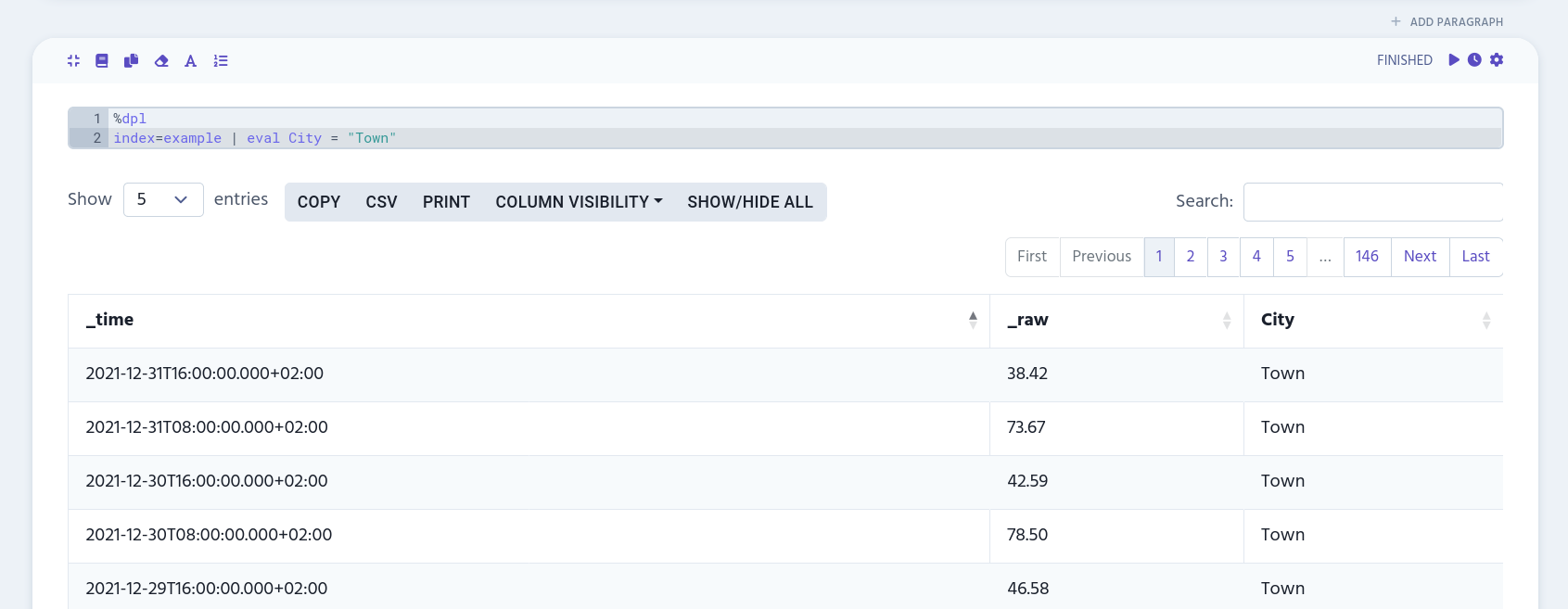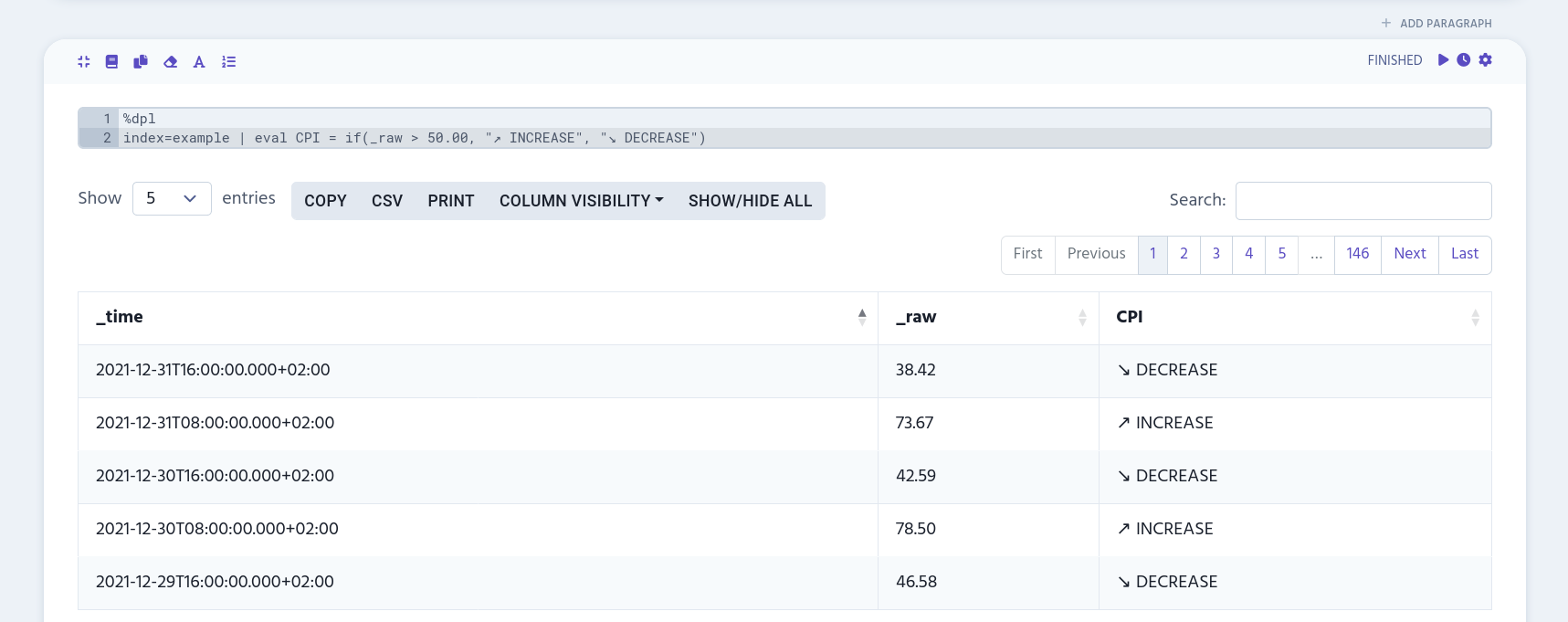eval
Table of Contents
| This command is experimental |
Definition
eval calculates an expression and adds its result as a new table column.
Use =, +, -, *, / or evaluations to calculate the expression. Separate with a comma multiple expressions in one eval statement.
Examples
eval expression can contain either number or string values. Use quotation marks with string values.
%dpl
| makeresults
| eval firstValue = 10.5, secondValue = 62.9|
Currently, |
%dpl
index=example | eval City = "Town"
Calculating a Numeric Expression
You can make simple math calculations with eval by using +, -, * or / with variables.
%dpl
| makeresults
| eval decimal1 = 20.7, decimal2 = 28.9
| eval sum = decimal1 + decimal2, difference = decimal1 - decimal2, multiplication = decimal1 * decimal2, division = decimal1 / decimal2| The calculation order is currently literal, so it may not give you the correct result. This will be fixed before the community release. |
Combining String Values
You can combine two or more string values with eval.
%dpl
| makeresults
| eval string1 = "this is text", string2 = " that continues with this"
| eval combineText = string1 + string2|
Currently, |
Evaluations
Use evaluation commands with eval to get more detailed results.
%dpl
index=example | eval CPI = if(_raw > 50.00, "↗ INCREASE", "↘ DECREASE")